AGGIE GREEN FUND  TEXAS A&M UNIVERSITY
TEXAS A&M UNIVERSITY
AGGIE GREEN FUND  TEXAS A&M UNIVERSITY
TEXAS A&M UNIVERSITY
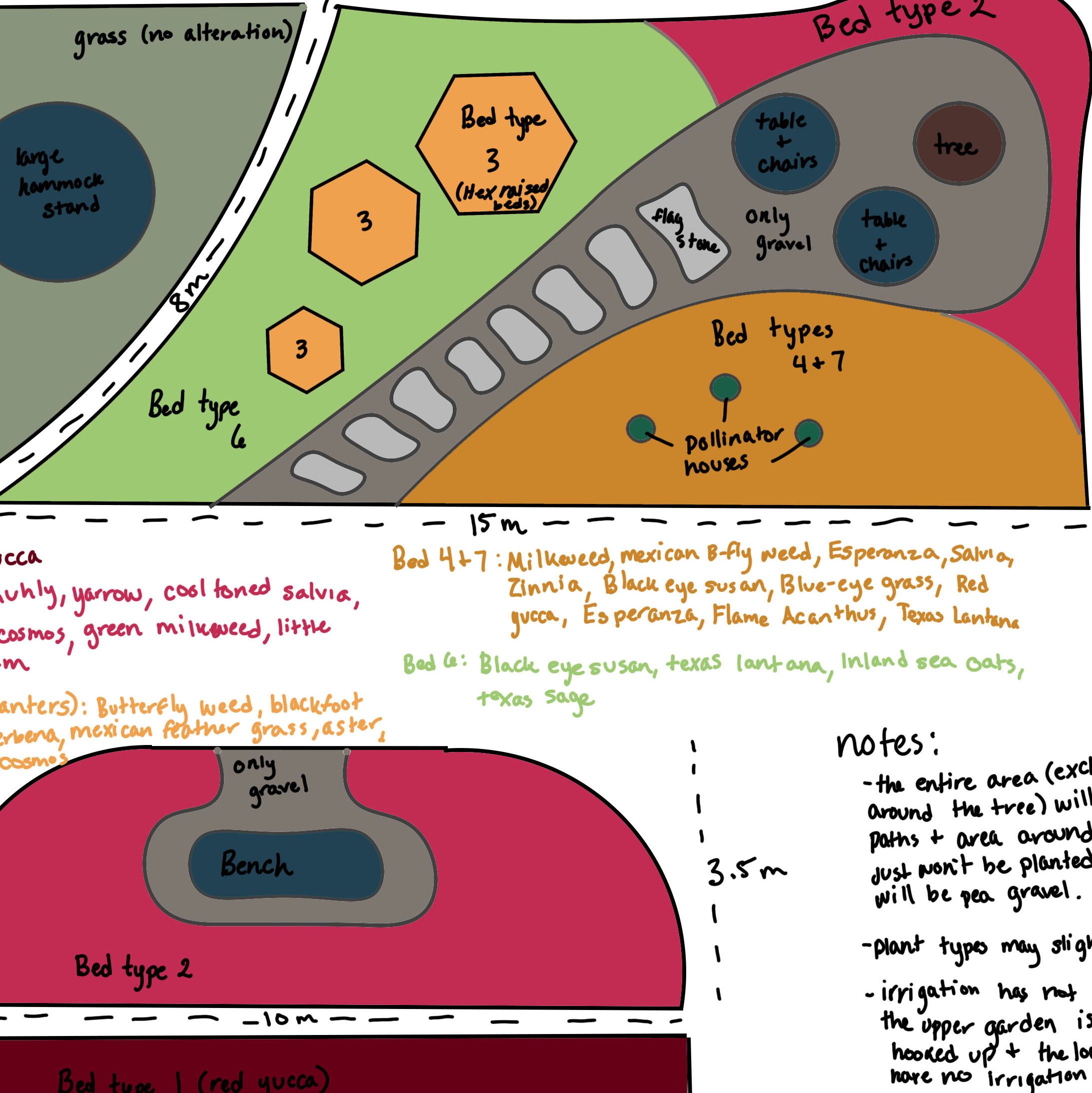
Install a Gravel Garden between Hullabaloo and Schumacher Hall to limit water needs, provide a resource for native and migratory pollinators, and serve as a teaching garden for students on campus. There will be hammock stands, tables, chairs, and benches installed for students, faculty, and staff. The garden will educate the campus on the plant and pollinator species present while also providing outdoor space for the campus to spend more time outside. This project is pending University Architect approval.
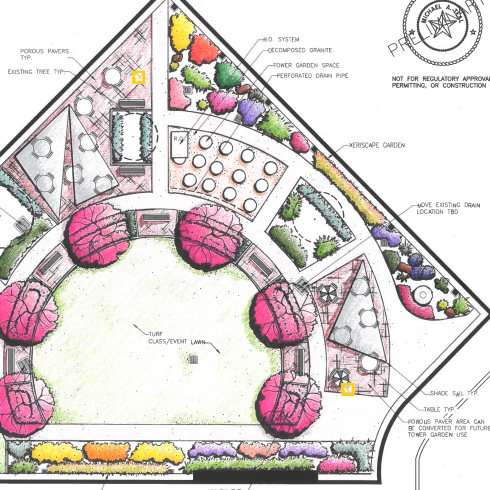
IConvert existing, non-functional space at the School of Public Health into green space incorporating sustainable soft and hardscape that creates a space where people are welcome, energized, and encouraged to adopt a healthy lifestyle. This project will include butterfly and healing gardens, shaded seating areas, xeriscape landscaping, improved irrigation, walking trails using sustainable materials that will improve drainage, and construct a gathering plan for class instruction and outreach programming. This project is pending University Architect approval.
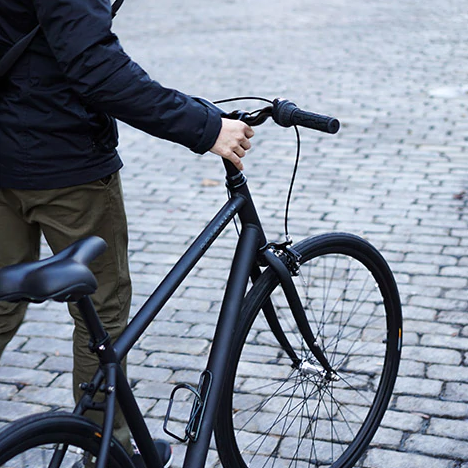
Purchase 30 new Priority Gotham belt drive bicycles for the Sustainable Transportation’s Bike Lease Program. These bikes will go through a 30-point safety check and be added to the current fleet. The Bike Lease program reduces the number of single-occupancy vehicles traveling around campus and reduces the demand for buses. The program also makes bicycle shop quality bicycles available to students who would otherwise not be able to afford them.
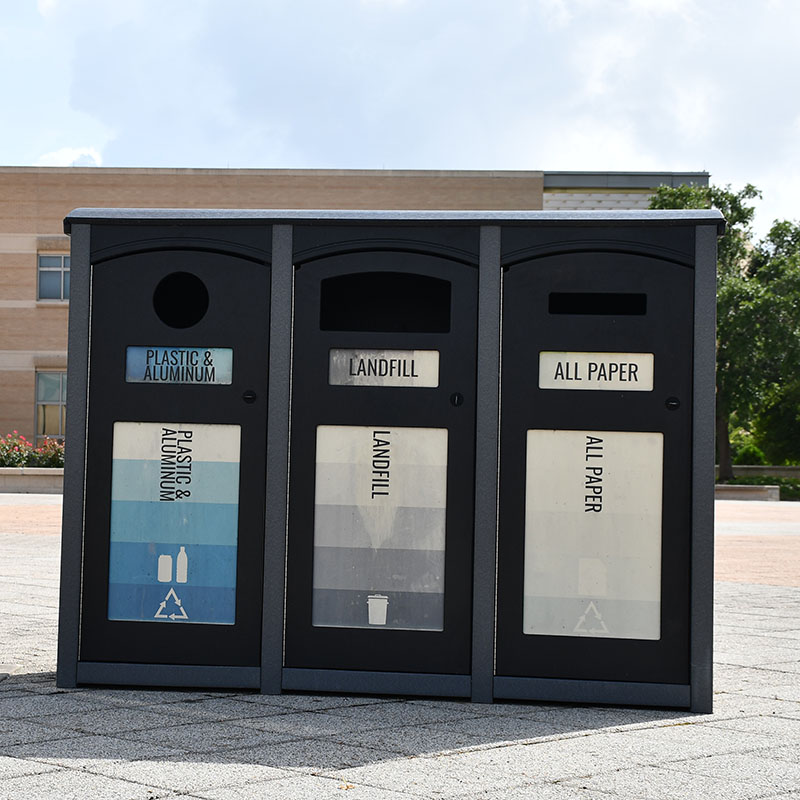
Install 22 stainless steel, 3 stream receptacle recycling bins for each floor of the Appelt, David-Gary, Hobby, Legett, and Neeley Residence Halls. This grant aims to add recycling bins to more accessible locations for students who live in the hall because a barrier to engaging in more sustainable behaviors such as recycling is convenience. The primary goal of this project is to increase the amount of waste diverted from the landfill to recycling and increase resident awareness of the availability of recycling.
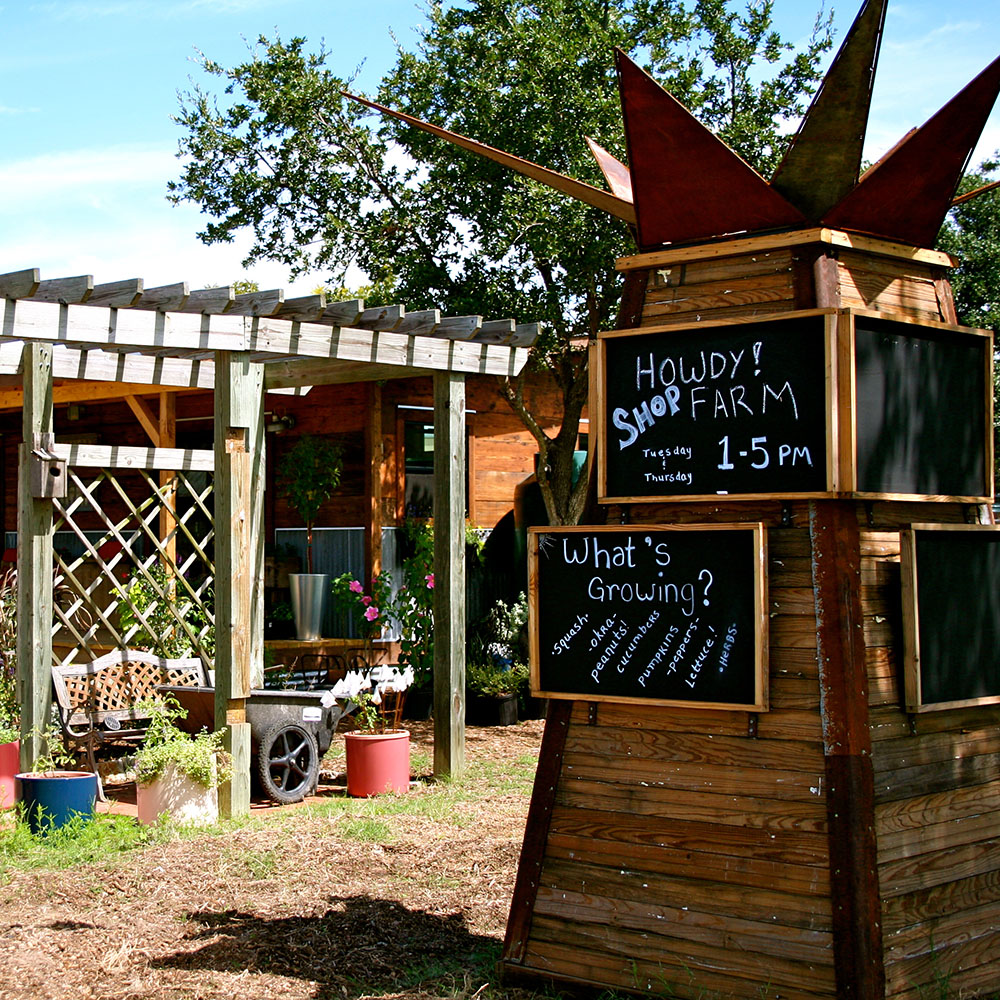
Install a new source for a future irrigation system for one of TUHF’s greenhouses. This new irrigation system will encompass the purchase and installment of new gutters around the greenhouse. These gutters will help collect rainwater into collection tanks that can be used for the greenhouse plants and surrounding garden beds. This project will reduce, if not completely remove, the need to pump water to the current location while saving the farm money that could be allocated to the expansion of sustainable farming practices throughout the BCS area.
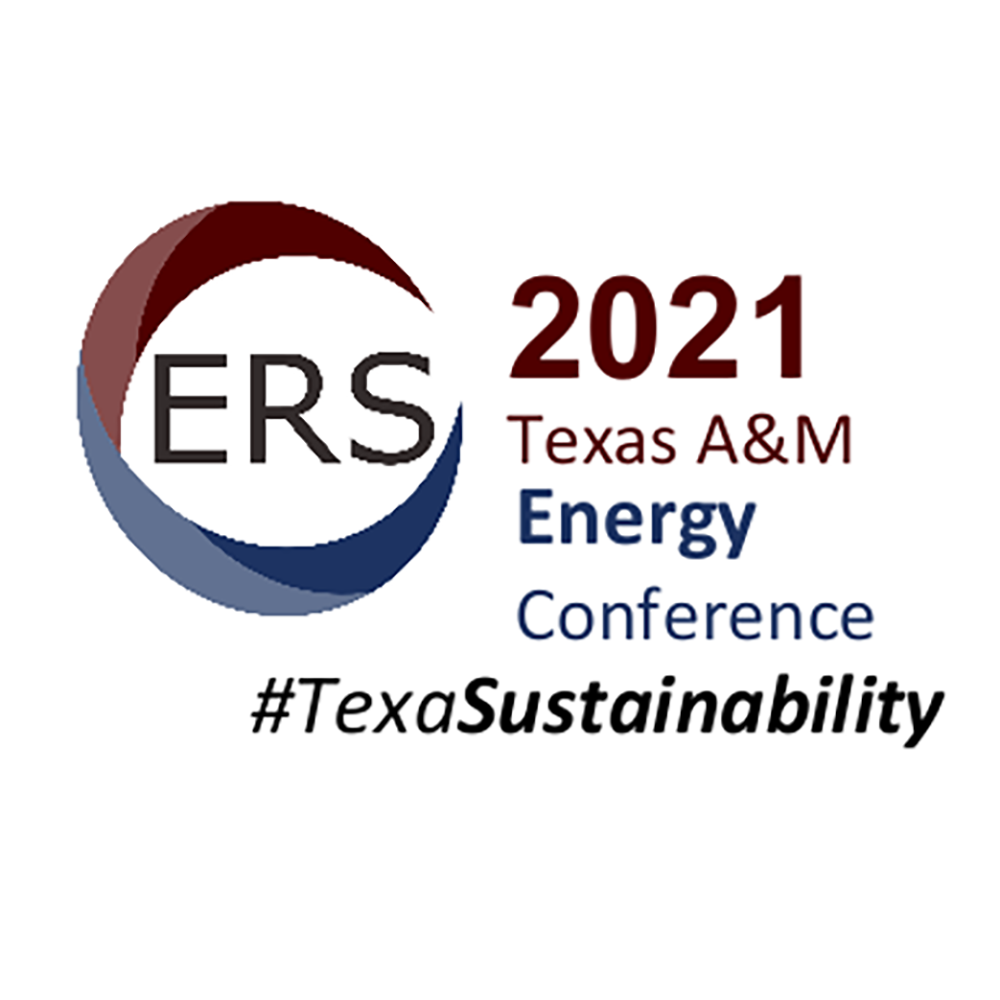
Purchase reusable tote bags for the Texas A&M University Energy Research Society Conference on Energy. The goal of this project was to reduce the number of plastic bags at the event and encourage attendees to reuse them personally after the event.

Install two bottle fill stations in the Oran W. Nicks Low Speed Wind Tunnel facility. All staff have reusable water bottles and use them in their everyday lives, but with current water fountains, it has become difficult to implement this practice during the day. The goal of this project is to allow the Wind Tunnel staff to practice sustainable and safe practices by reducing carbon emissions, from trips to the store, production of plastic water bottles, and plastic consumption.
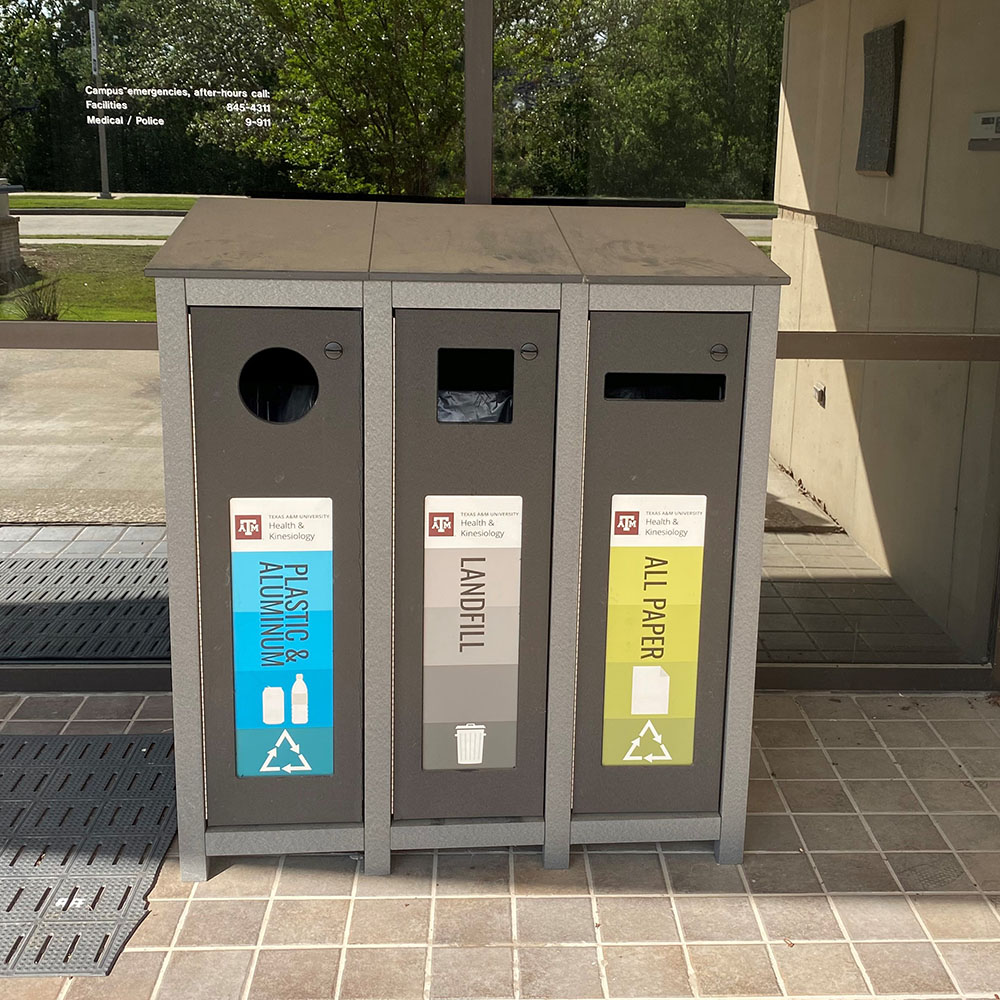
Provide individual recycling bins for every office, two campus standard three-stream recycling containers, and one large paper recycling bin in the copy room on the second floor of the Pavilion Building. This area houses the Division of Academic and Strategic Collaborations. The goals of this project are to encourage recycling within the office, reduce landfill waste, and provide an introduction to sustainability for the office.
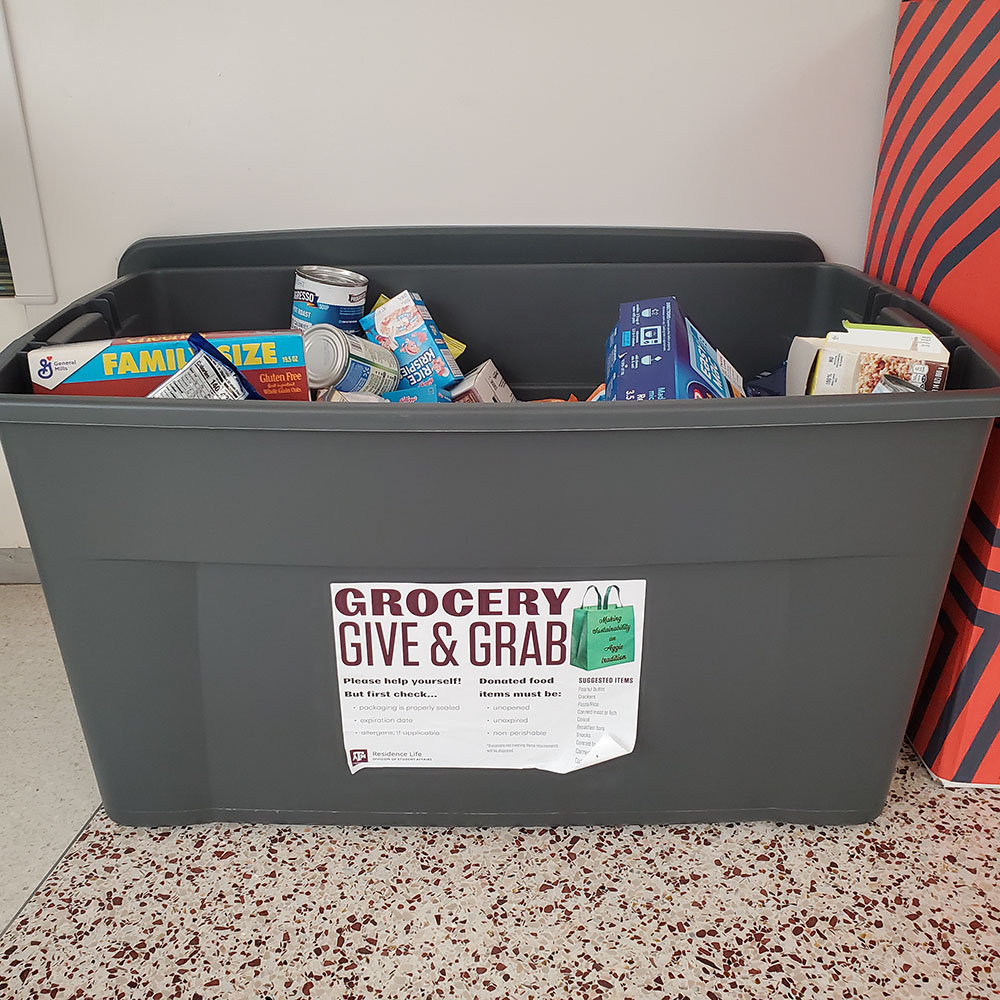
Expand Residence Life’s Grocery Give & Grab (G3) program. G3 began as a semesterly program hosted by Residence Life to help address food insecurity. Collection bins are placed in central areas across campus that allow students to donate food they do not want or have too much of. Despite the success of G3, it has been brought up by both residents and staff members that they would like to see permanent locations, as food insecurity does not only happen at the end of each semester. This grant will allow the department to purchase bookcases that can serve as permanent G3 collection spots and further provide access to food for students in need. However, it should be noted that this project is only a temporary solution and option for students.
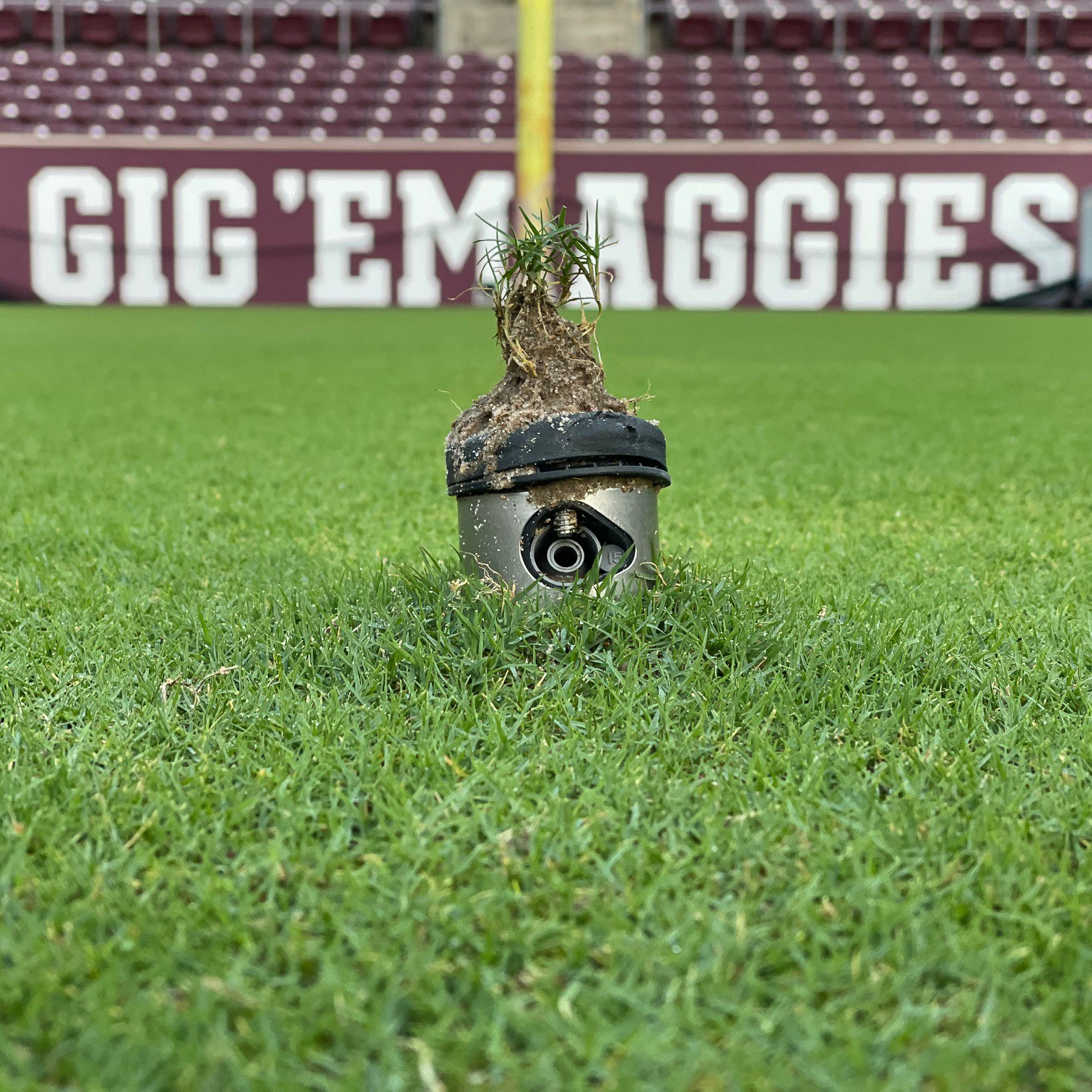
Install two water sensors and accompanying tracking applications to monitor the moisture on Athletics fields. This will allow the project team to efficiently establish irrigation and maintenance practices. The primary purpose of this project is to assist in the fulfillment of the Campus Sustainability Master Plan, specifically the water efficiency and reduction goals listed under the Built Environment and Site Design section.
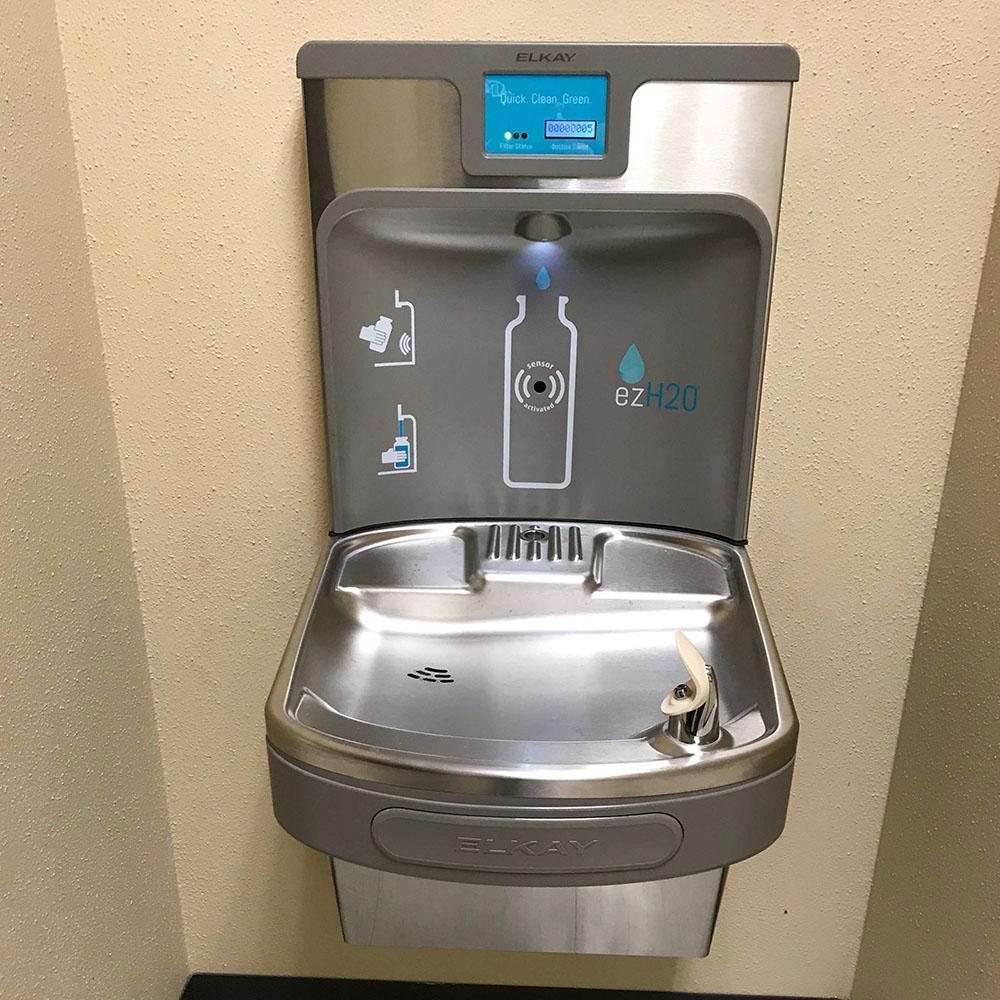
Provide hundreds of students, faculty, and staff who work in the Bright Building with a new water bottle filling station to encourage users to reuse water bottles and reduce plastic waste.

Provide students, faculty, and staff who work and visit the M. T. Harrington Education 6th Floor cold, clean, filtered water. The Center on Disability and Development is staffed by faculty and professionals who represent a wide range of human service disciplines. The goals of the project are to make clean water more accessible, provide a better option for water, and encourage the use of reusable containers.
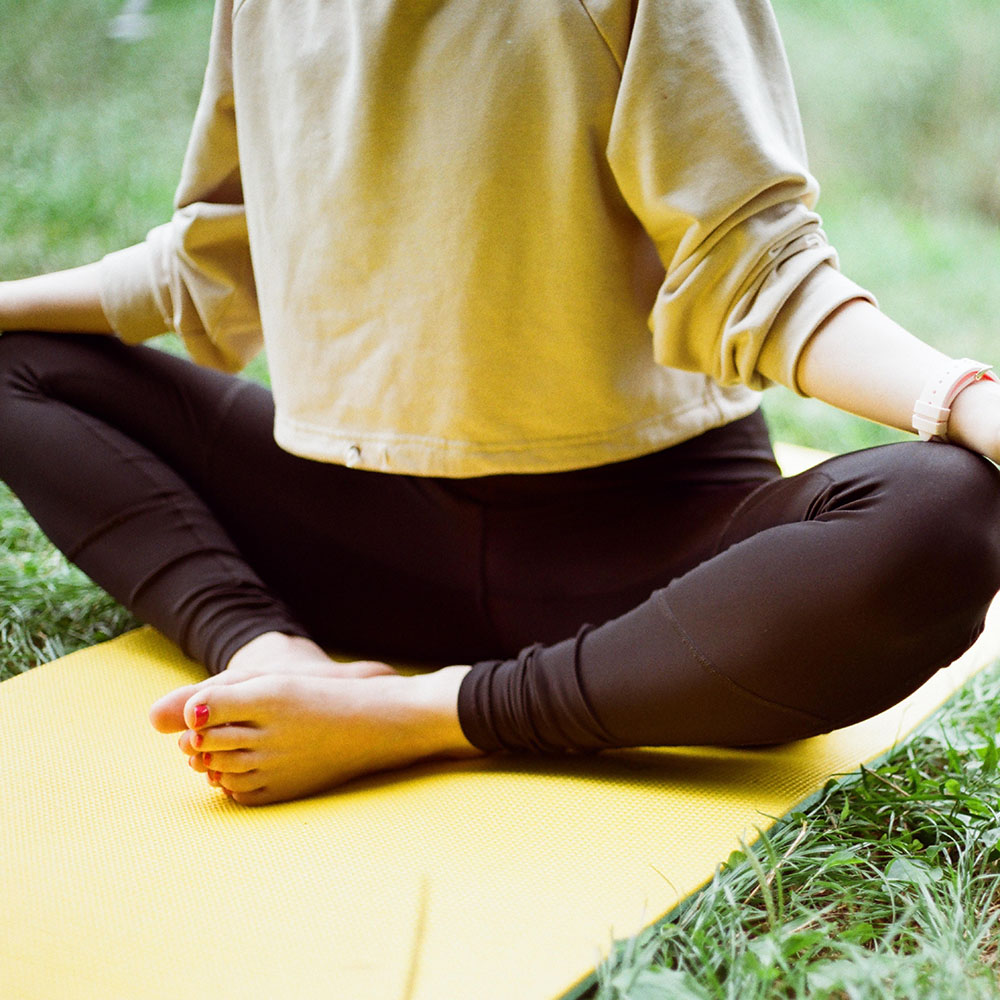
Build upon The Urban Howdy Farm’s mission of “grow to serve” by expanding the physical health initiative to include mental health by adding practices of meditation for emotional and spiritual health. The goals of this project include spreading a health and happiness message through a meditation technique called the “Safety Breath” to students and staff of the Department of Residence Life and then initiating a campus-wide movement of meditation and holistic health.
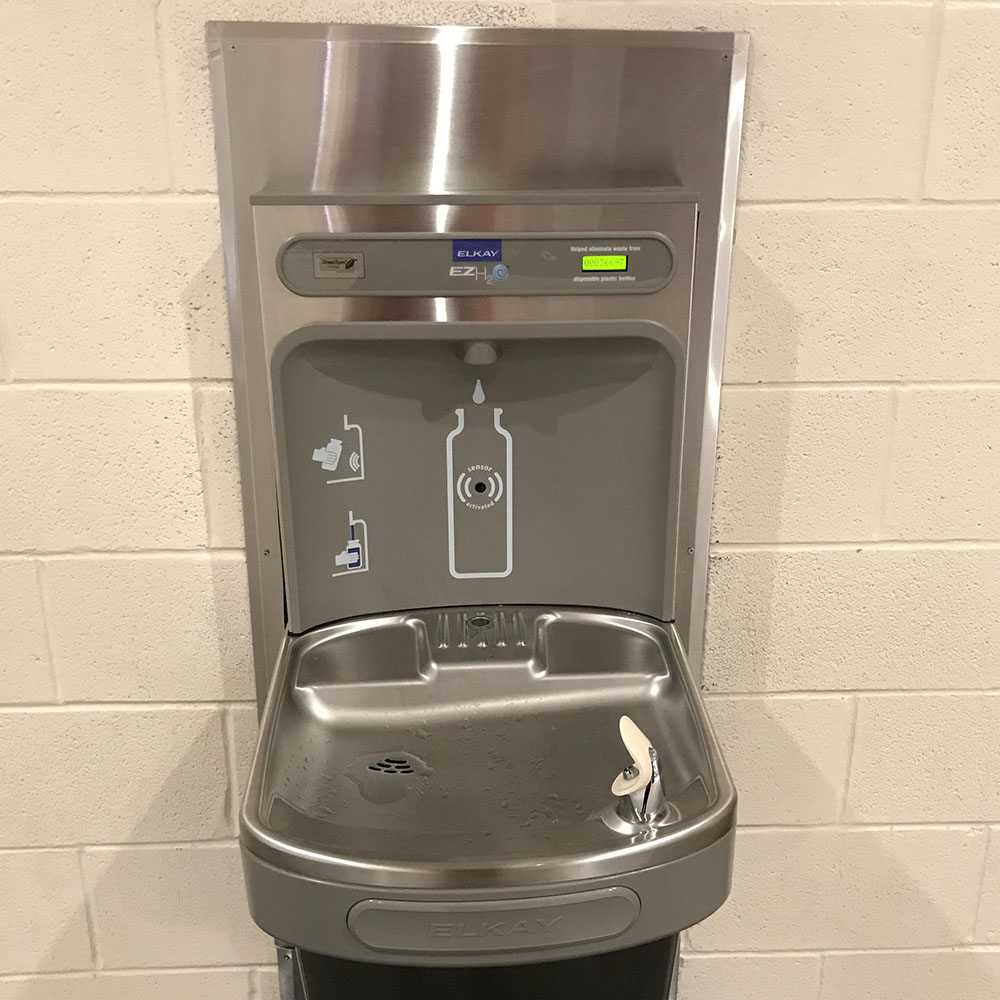
Install a water filling station on the first floor of Harrington Tower in the lobby/hallway area. The goal is to promote sustainable practices, reduce plastic bottles in landfills, and save money from the purchase of bottled water. This will provide faculty, staff, and the multitude of students that access Harrington Tower daily the ability to consume the recommended amount of water every day in a convenient way.
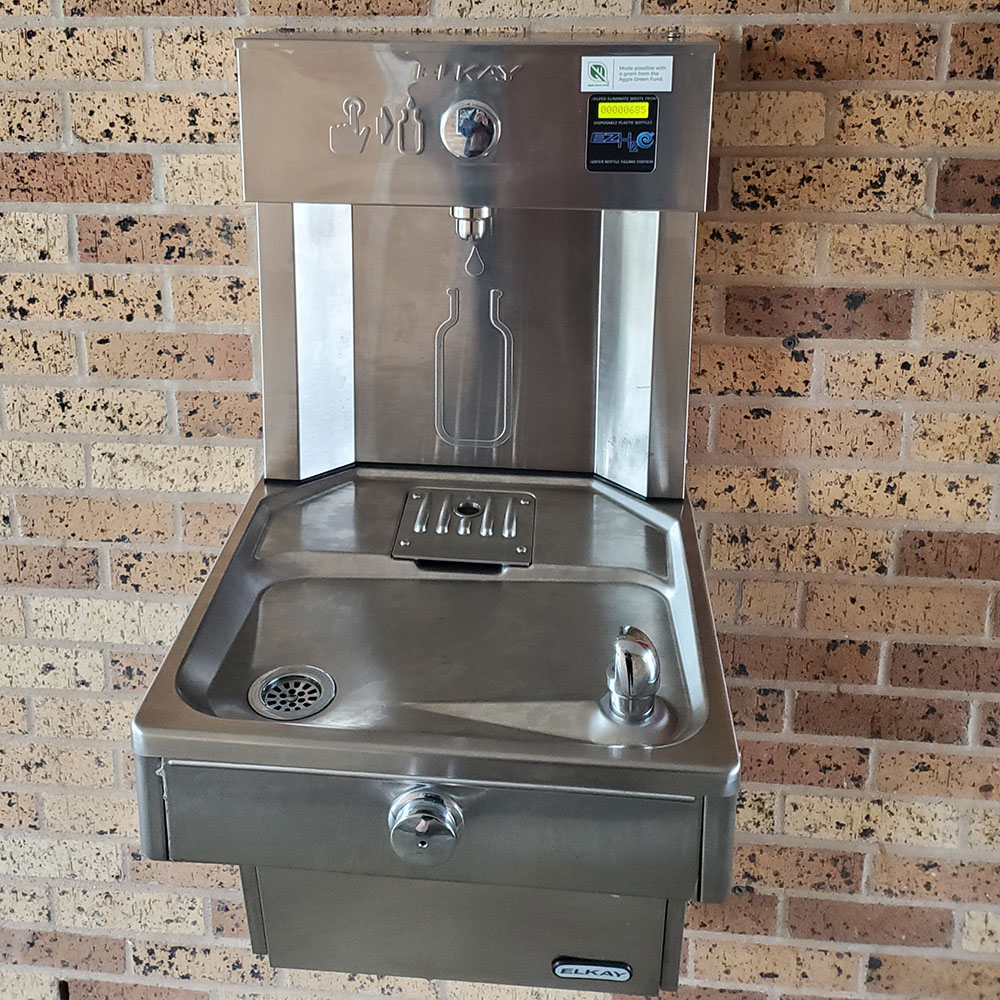
Replace the current water fountain in the Social Sciences building with a water bottle filling station. This building is not near any cafes or dining services and having access to clean, cold water is a very convenient addition to the building. The bottle filling station would serve a large population of students, faculty, and staff in the building. The department is also home to the Economics Research Laboratory which holds experiments, using undergraduate student volunteers, an average of six times a week.